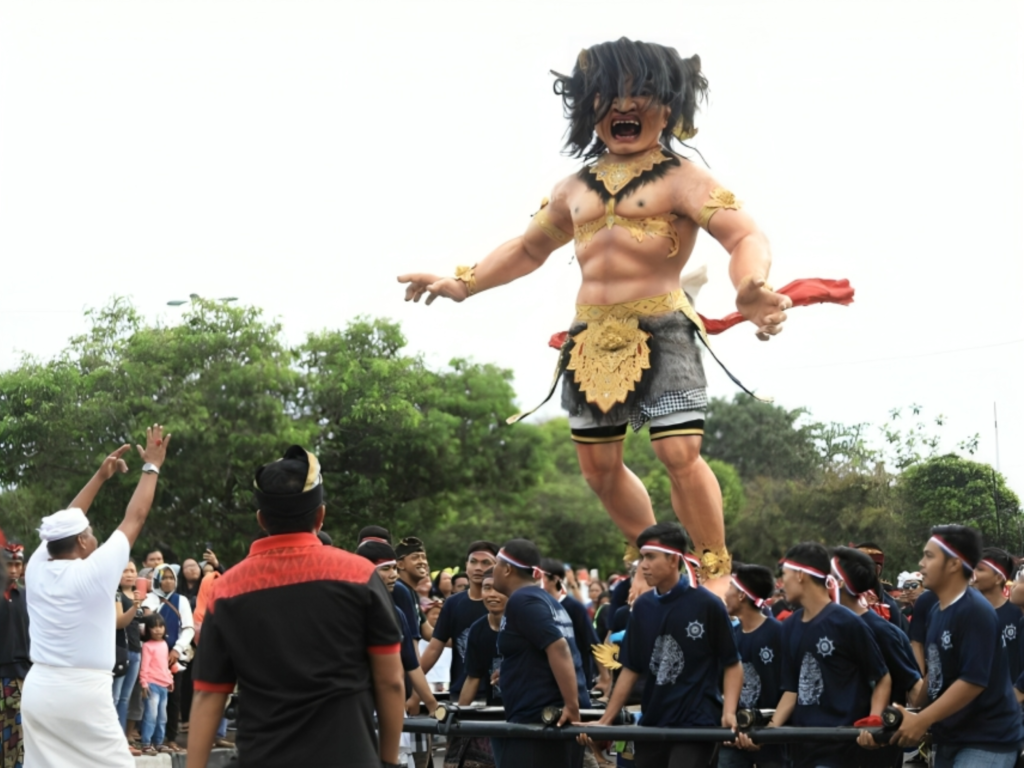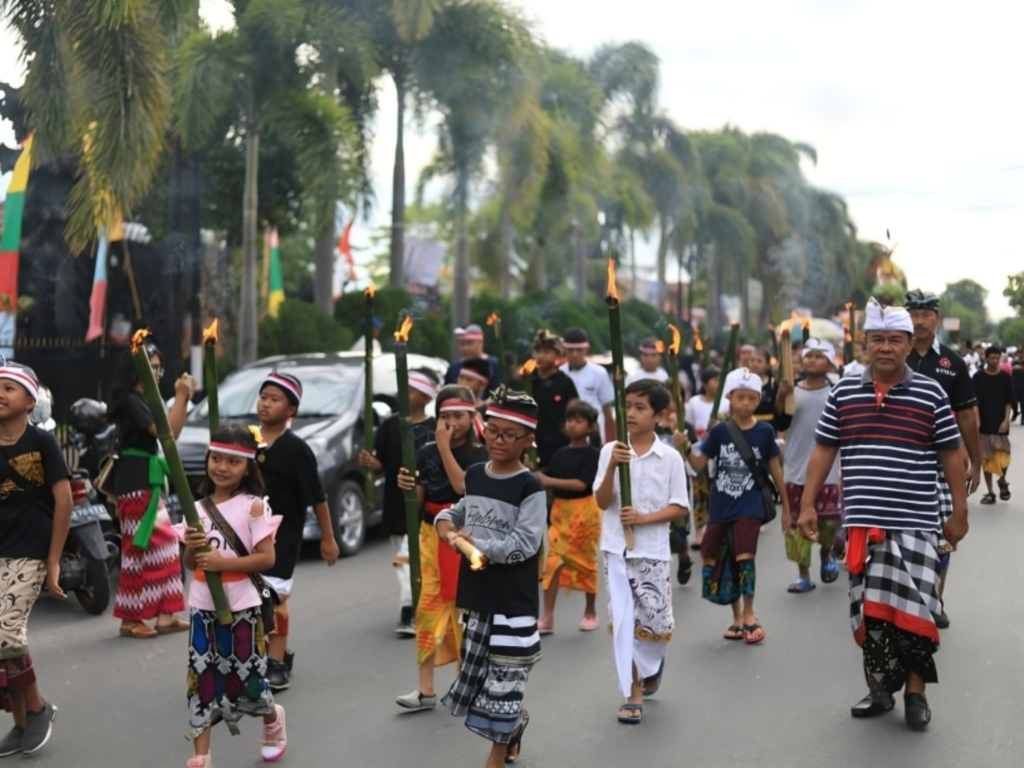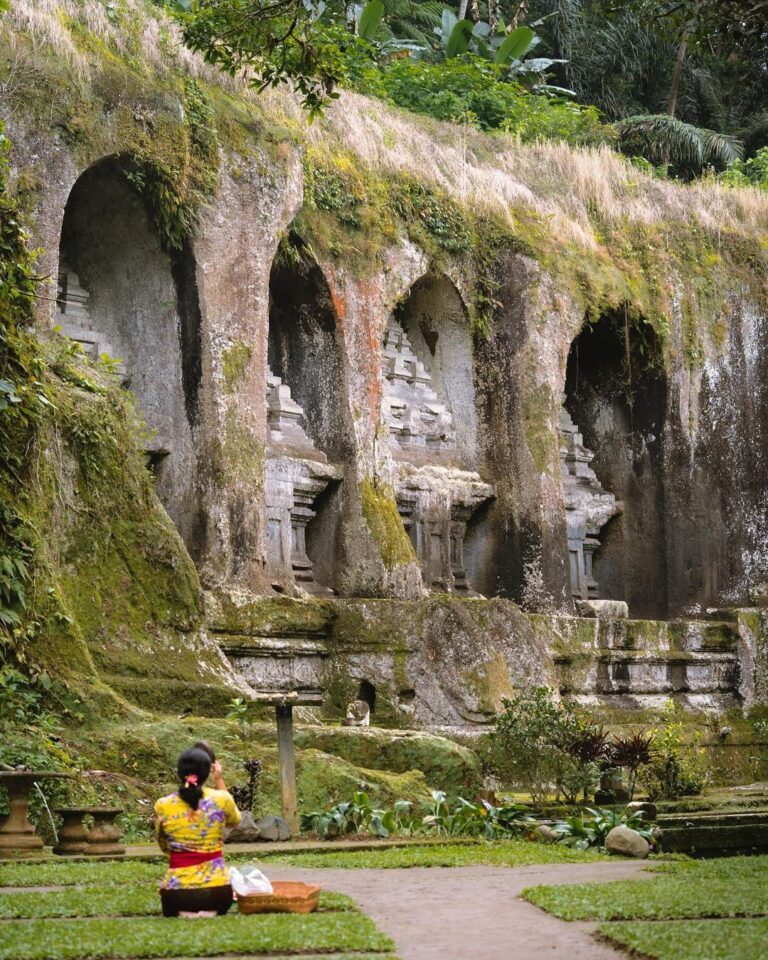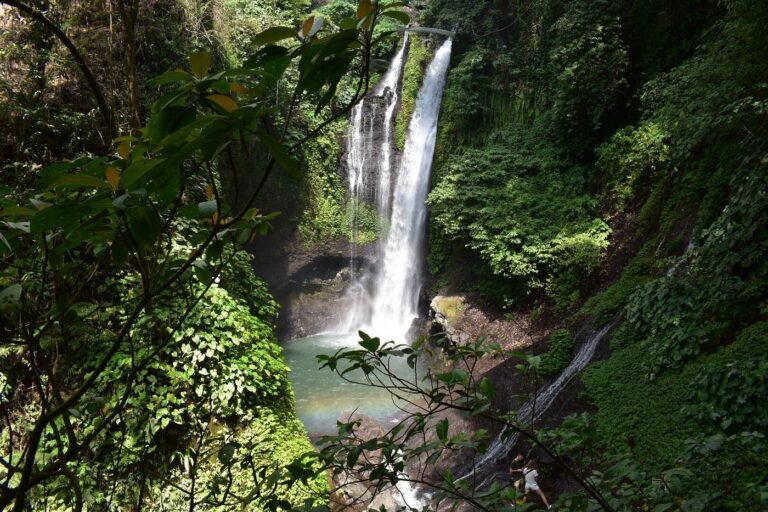Amidst the vibrant energy of Bali, a unique day carves a silent space in the island’s rhythm – Nyepi, also known as the Day of Silence.
Observed annually on the Çaka (Shaka) new year according to the Balinese calendar.
Nyepi is a 24-hour period dedicated to introspection, meditation, and purification.
It’s a profound experience, offering a chance to disconnect from the external world and reconnect with the inner self.

(Photo by : Ari Purna Prahara)
A Day of Cessation
Nyepi begins at sunrise and extends until the following sunrise, creating a space of complete stillness.
The island transforms into a scene of tranquillity. Streets become deserted, devoid of the usual traffic and cacophony of daily life.
Shops and other business establishments shutter their doors, and even the sound of aeroplanes is silenced as all flights going in and out of the island are grounded.
An air of introspection descends upon Bali, prompting residents to turn inward towards self-reflection and spiritual renewal.
Rituals and Traditions
The lead-up to Nyepi is marked by a vibrant ceremony called Melasti. Balinese Hindus flock to beaches and sacred water sources to cleanse themselves and their belongings, symbolically washing away negativity and preparing for the day of silence.
The night before, villages come alive with the sounds of ogoh-ogoh, monstrous papier-mâché effigies representing negative forces, paraded through the streets before being burned at night, symbolising the purification process.
On Nyepi itself, elaborate offerings called “Caru” are placed outside homes to ward off evil spirits.
Balinese Hindus must abstain from four principle activities, namely:
Amati Geni (abstaining from lighting fires).
Amati Karya (abstaining from work).
Amati Lelungan (abstaining from venturing outside the family compound).
Amati Lelanguan (abstaining from enjoying entertainment).

(Photo by : Ari Purna Prahara)
A Time for Meditation and Renewal
With the external world muted from 6 a.m. until 6 a.m. the next morning, Nyepi provides a unique opportunity for meditation and self-reflection. Balinese Hindus spend the day in prayer, meditation, and introspection.
The effect of these prohibitions is that Bali’s usually bustling streets and roads are empty, there is little or no noise from TVs and radios, limited access to Internet and few signs of activity are seen even inside homes.
The only people to be seen outdoors are the pecalang, cultural security men who patrol the streets to ensure the prohibitions are being followed.
Families may gather for quiet meals and prayers, while some choose to retreat to temples for a deeper spiritual connection.
For many, Nyepi is a time to let go of negative thoughts and anxieties, to seek forgiveness, and to set intentions for the coming year.
Beyond the Silence: A Celebration of Renewal
The day following Nyepi, known as Ngempiak, marks a joyous celebration of the new year.
The silence lifts, replaced by a festive atmosphere. Villagers gather for community meals, traditional music fills the air, and a sense of renewal permeates the island.
A special ceremony called “Omed-omedan”, a playful tug-of-war between unmarried men and women, symbolises the hope for new beginnings and the continuation of life’s cycles.

Experiencing Nyepi
While tourists are expected to respect the customs of Nyepi, there are ways to experience the unique atmosphere.
Many hotels offer special programs with meditation sessions and cultural activities.
Observing the preparations leading up to Nyepi and witnessing the joyful celebrations of Ngempiak can provide valuable insights into Balinese traditions.
Nyepi is more than just a day of silence; it’s a profound spiritual experience that offers a glimpse into the heart of Balinese culture.
It’s a time for reflection, purification, and renewal, a reminder of the importance of inner peace and the interconnectedness of all things.




